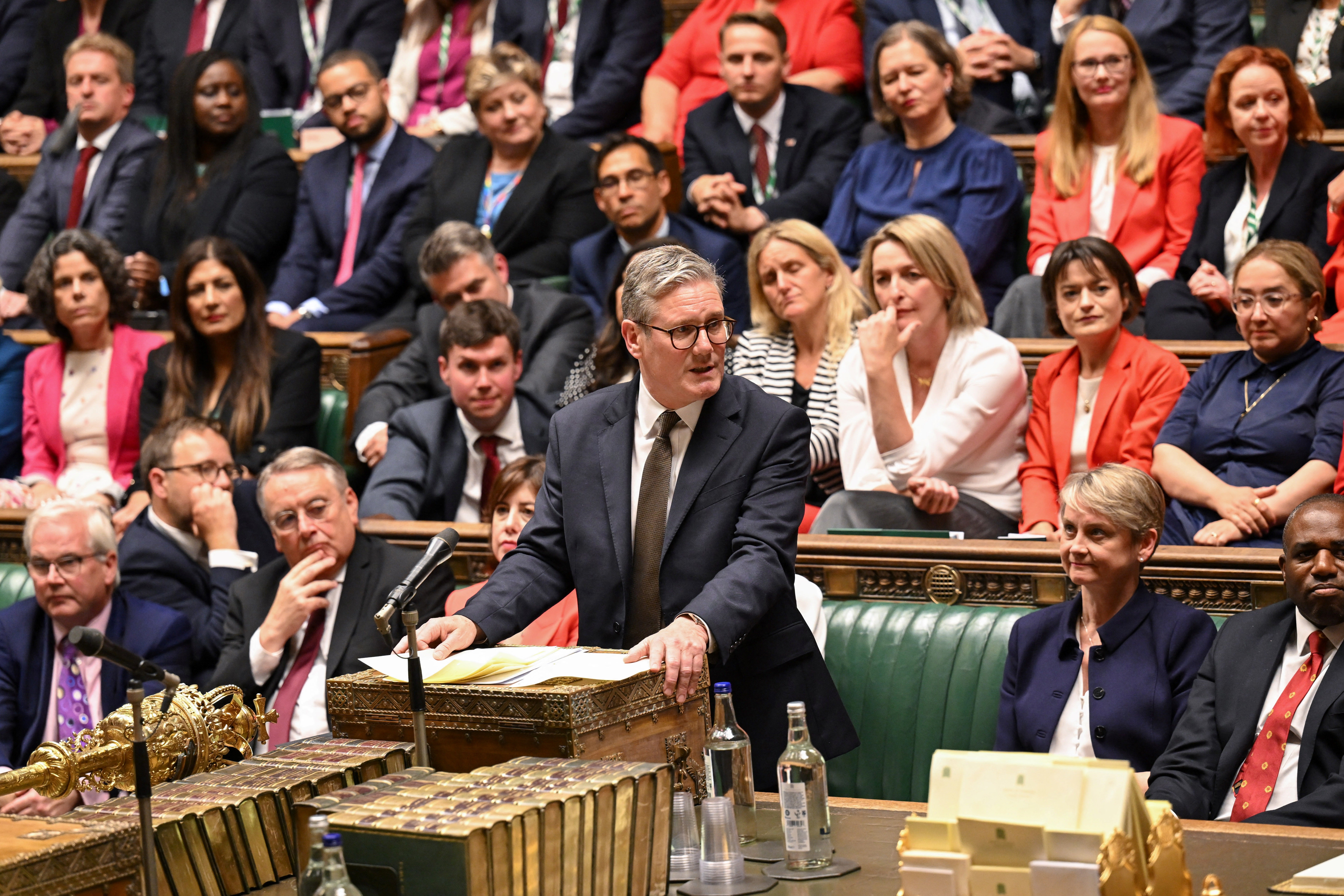Will the King’s Speech deliver division in the Labour Party?
Labour’s New Deal is a flagship policy that has already split the party as Keir Starmer stands accused of watering down the bill to benefit business, writes Sean O’Grady


According to the government’s website, various departments are working on more than 35 bills in advance of the King’s Speech on Wednesday, which will outline the legislative programme for the year ahead. The law to enact Labour’s “New Deal for Working People” will come under scrutiny. This was originally Angela Rayner’s project and was launched at the Labour conference in 2021.
However, since then some of the provisions have been watered down, and Rayner’s personal responsibility for the new deal seems to have passed to the chancellor, Rachel Reeves, and the business secretary, Jonathan Reynolds. Some in the trades unions and on the left of the party fear that business interests have already had too much say over the new law, and may yet weaken it still further.
What’s the problem?
Unions are so concerned that the government will further weaken its new law that they have spoken out in public. The TUC general secretary, Paul Nowak, warns: “British voters across the political spectrum want work to pay and to feel secure and respected in their jobs. Labour’s workers’ rights plans are hugely popular, and this poll should give ministers confidence to get on with delivering them in full.”
To bolster its case, the TUC has commissioned a public opinion poll that shows a majority of Labour, Conservative and Reform supporters, respectively, support measures including giving workers protection against unfair dismissal from day one of a job, banning zero-hours contracts, and ending “fire and rehire”.
What will happen?
Some sort of bill, perhaps a draft one, will be announced on Wednesday, and will be presented to the Commons in the coming weeks. The pledge to do so is explicit in the Labour manifesto, and so much so that it has the feel of something inserted by Rayner and the unions: “Labour will stop the chaos and turn the page to create a partnership between business and trade unions, by implementing ‘Labour’s Plan to Make Work Pay: Delivering a New Deal for Working People’ in full – introducing legislation within 100 days.”
So what’s the catch?
The next sentence in the manifesto, which adds: “We will consult fully with businesses, workers, and civil society on how to put our plans into practice before legislation is passed.” Extensive private talks with business leaders have already taken place under the aegis of Keir Starmer, Reeves and Reynolds.
The manifesto commitments currently include “banning exploitative zero-hours contracts; ending fire and rehire; and introducing basic rights from day one to parental leave, sick pay, and protection from unfair dismissal”. But there is plenty of wriggle room about the manner of implementation, possible exemptions and specific wording. For example, what was once going to be a blanket ban on zero-hours contracts has been transmuted into a ban on “exploitative” ones, leaving room for the practice to continue.
What about repealing anti-union laws?
In the Labour manifesto itself, there was only a promise to “strengthen the collective voice of workers, including through their trade unions, and create a Single Enforcement Body to ensure employment rights are upheld”. However, the latest iteration of the new deal does detail the legislation Labour will repeal, including ones on allowing agency workers to break strikes and making unions agree to minimum public service guarantees in certain areas such as the railways.
Labour also looks set to make the right to union recognition in the workplace easier to secure and to reduce the threshold for industrial action to be approved in a strike ballot. But, as ever, the devil will be in the (as yet unpublished) detail, for example on the exact procedures and percentages of support that will be needed to gain trade union collective bargaining rights against a hostile employer. The same goes for trying to clear up the legal definition of a “worker”, as opposed to the genuinely self-employed.
What does business want?
They’ve warned that giving workers too many rights may make employers less willing to hire, though in a labour shortage, as now, it might be difficult to avoid doing so. One of the UK’s few competitive strengths over the past few decades has been its relatively liberal labour markets, a fact that no doubt will weigh heavily on the chancellor’s mind.
Who’s in charge?
Starmer, ultimately, is a famously cautious man who will not want to alienate business as he and Reeves drive for higher growth, investment and job creation. As the relevant secretary of state, Reynolds and his ministerial team will be taking the new laws through parliament, but Rayner has her own mandate and authority within the party as a directly elected deputy leader and has let it be known that she will still be involved in the implementation of the new deal.
In particular, she will be keen to secure the manifesto pledge for a “Fair Pay Agreement” in adult social care (as she is a former care worker). Even here, though, there is evidence of hedging: “Labour will consult widely on the design of this agreement, before beginning the process and learn from countries where they operate successfully.”
Plenty of scope for friction, then.






Join our commenting forum
Join thought-provoking conversations, follow other Independent readers and see their replies
Comments